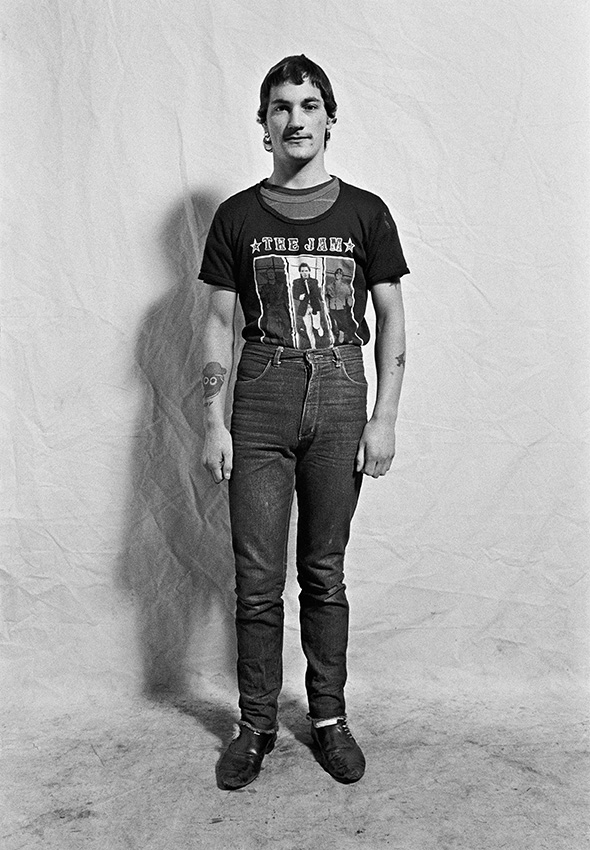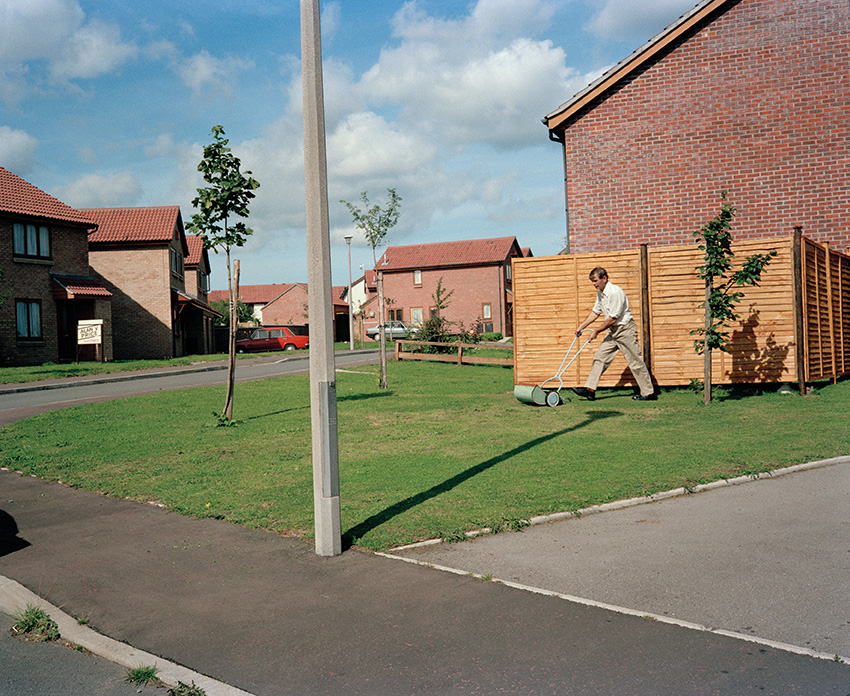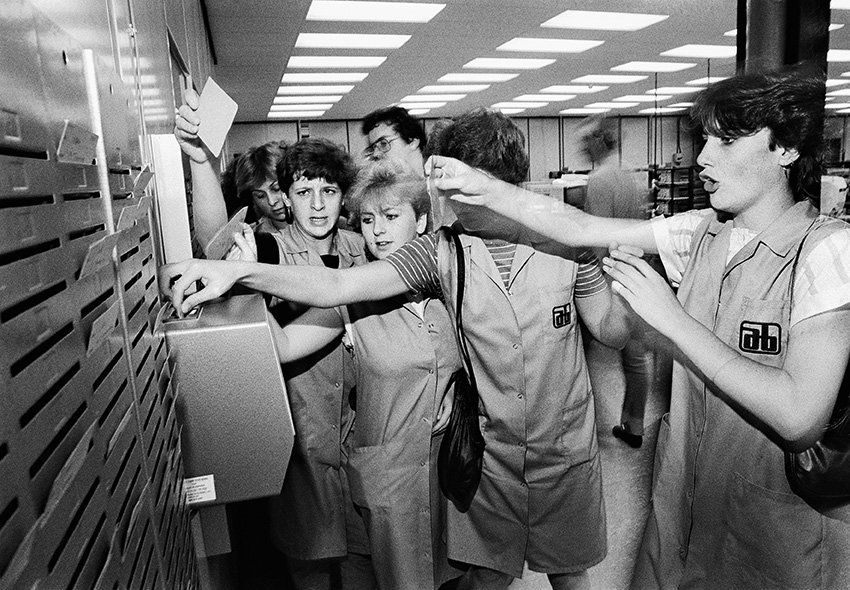When Paul Reas was studying photography with David Hurn, the Magnum great advised him on what exactly he’d need to sustain a long and fruitful career: a decent pair of shoes.
“Of course he didn’t mean a fashionable pair, but a comfortable pair,“ he says, recalling the tip. “A pair which would allow you to walk and stand for long periods of time without discomfort. As much of my work, and the kinds of photography I admire, requires patience, effort and an investment of time, I still think his advice is valid today.”
While the chosen footwear has invariably changed over the years, the 63-year-old’s commitment to documenting British life has remained the same. Born into a working class family in ’50s Bradford, Reas’ sharp, unique observations on class and culture have placed him alongside the likes of Martin Parr, Anna Fox and Paul Graham.

From ‘Flogging a Dead Horse’, 1989 © Paul Reas

From ‘Flogging a Dead Horse’, 1989 © Paul Reas
Now, in a retrospective titled Fables of Faubus, 30 years of his work has been brought together for the first time. Featuring photos taken between 1982 and 2012, the book – published by GOST – maps Britain’s modern social history, from Thatcher right through to the Cameron years, where the early rumblings of Brexit lurk around the corner.
“In many ways, the conditions which delivered the Leave vote in 2016 forms the meta narrative for the book – conditions which resulted in the marginalisation of working class communities,” Reas explains.
“These conditions would be the collapse of the countries manufacturing industries, subsequent unemployment, the promise of rebirth via free market economics and entrepreneurialism, the shift from ‘we’ to ‘me’ culture, the idealisation and repackaging of working lives by the Heritage Industry, the shift of mainstream politics towards the centre right. All of which left many communities feeling isolated and unrepresented.”

From ‘I Can Help’, 1984 © Paul Reas

From ‘Penrhys Estate’, 1984 © Paul Reas
The book takes its title from the Charles Mingus composition of 1959, which was written as a direct protest against Arkansas Governor Orval Faubus who, in 1957, despatched the National Guard to prevent nine black students attending Little Rock Central High School. (“The term ‘Faubus’ came to represent any controlling force – be it racism or political ideology.”)
Ranging from life in Welsh mining towns to redevelopment in London’s Elephant and Castle area, Reas’ work covers a number of different themes and subjects. Consistent throughout, however, is his commitment to exploring the relationship between industry and identity, as well as the manner in which political decisions on a national scale impact small communities.
“We are clearly a divided nation, but this division did not happen overnight,” he says. “We all have to find a way of reconnecting in such a way that no one individual or community feels overlooked or unrepresented because what fills that vacuum of disenchantment is hate and intolerance.”

From ‘From a Distance’, 2012 © Paul Reas

From ‘Penrhys Estate’, 1984 © Paul Reas

From ‘I Can Help’, 1984 © Paul Reas

From ‘The Valleys Project’, 1984 © Paul Reas

From ‘I Can Help’, 1984 © Paul Reas

From ‘The Valleys Project’, 1984 © Paul Reas

From ‘Flogging a Dead Horse’, 1989 © Paul Reas

From ‘The Dance Class’, 1984 © Paul Reas
Fables of Faubus is available now from GOST.
Enjoyed this article? Like Huck on Facebook or follow us on Twitter.
Latest on Huck

The inner-city riding club serving Newcastle’s youth
Stepney Western — Harry Lawson’s new experimental documentary sets up a Western film in the English North East, by focusing on a stables that also functions as a charity for disadvantaged young people.
Written by: Isaac Muk

The British intimacy of ‘the afters’
Not Going Home — In 1998, photographer Mischa Haller travelled to nightclubs just as their doors were shutting and dancers streamed out onto the streets, capturing the country’s partying youth in the early morning haze.
Written by: Ella Glossop

See winners of the World Press Photo Contest 2025
A view from the frontlines — There are 42 winning photographers this year, selected from 59,320 entries.
Written by: Zahra Onsori

Inside Kashmir’s growing youth tattoo movement
Catharsis in ink — Despite being forbidden under Islam, a wave of tattoo shops are springing up in India-administered Kashmir. Saqib Mugloo spoke to those on both ends of the needle.
Written by: Saqib Mugloo

The forgotten women’s football film banned in Brazil
Onda Nova — With cross-dressing footballers, lesbian sex and the dawn of women’s football, the cult movie was first released in 1983, before being censored by the country’s military dictatorship. Now restored and re-released, it’s being shown in London at this year’s BFI Flare film festival.
Written by: Jake Hall

In the dressing room with the 20th century’s greatest musicians
Backstage 1977-2000 — As a photographer for NME, David Corio spent two decades lounging behind the scenes with the world’s biggest music stars. A new photobook revisits his archive of candid portraits.
Written by: Miss Rosen
